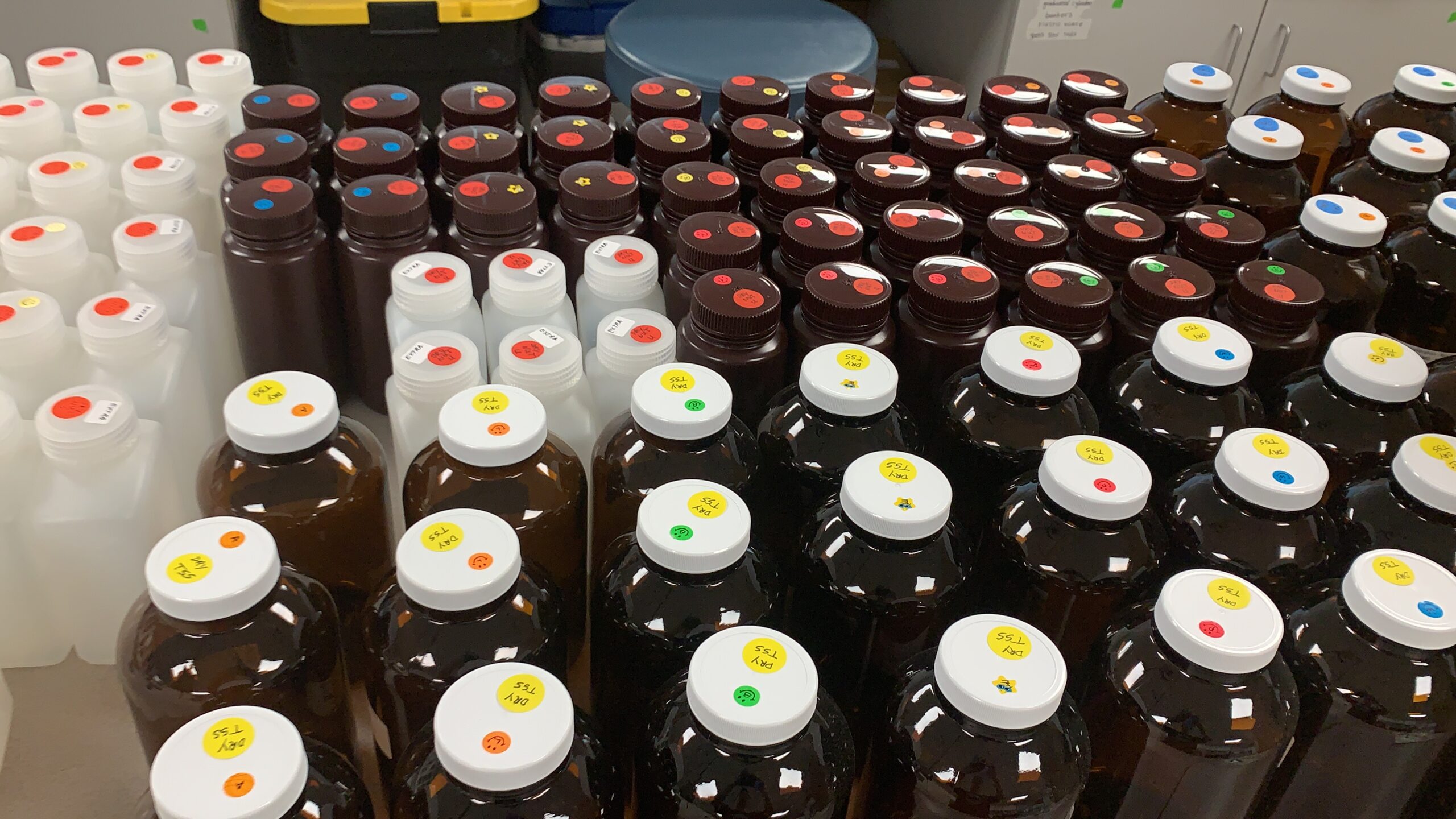The SMC has completed the fourth iteration of a periodic intercalibration exercise to ensure laboratories performing routine chemistry analyses of Southern California stormwater samples are capable of generating comparable, high-quality monitoring data.
The chemistry laboratory intercalibration, described in a technical report published in June, evaluated eight laboratories’ accuracy and precision in measuring five different classes of contaminants in wet- and dry-weather runoff: trace metals, nutrients, current-use and legacy pesticides, general chemistry such as total suspended solids, and polynuclear aromatic hydrocarbons (PAHs).
Participating laboratories worked through three rounds of analysis over a three-year period, from 2022 to 2024.
Overall, all but two laboratories that voluntarily opted not to participate in the final round of the intercalibration received passing grades for all five classes of chemicals.

The intercalibration exercises provide laboratories with the opportunity to work together to reduce variability and increase comparability in chemistry measurements.
SMC member agencies use the intercalibration exercises to help decide which laboratories to contract with for their ongoing monitoring needs. Through the intercalibrations, SMC member agencies can ensure that the laboratories they are using are producing high-quality, comparable data. Significantly, the SMC can then compile data sets to address regional-scale questions, including through the cyclical SMC Regional BMP Monitoring Network.
The SMC previously hosted chemistry laboratory intercalibrations in 2004, 2007, and 2010. The SMC also hosted a toxicity laboratory intercalibration in 2016. The SMC’s intercalibration work for bioassessment and physical habitat assessments, meanwhile, takes place through annual field audits.
For more information, contact Dr. Charles Wong with the Southern California Coastal Water Research Project (SCCWRP).
Dive deeper
- Scope of the SMC’s chemistry laboratory
- List of the eight laboratories that participated in the chemistry laboratory intercalibration
- Read the final report from the SMC’s newly completed chemistry laboratory intercalibration (June 2024) (PDF)
- Read the final report from the SMC’s previous chemistry laboratory intercalibration (2010) (PDF)
- Read the final report from the SMC’s first toxicity laboratory intercalibration (2016) (PDF)
SMC Summer 2024 Newsletter
Volume 5, Issue 1
This newsletter is published three times a year by the Southern California Stormwater Monitoring Coalition (SMC). To subscribe to this newsletter, contact inquiries@socalsmc.org.
